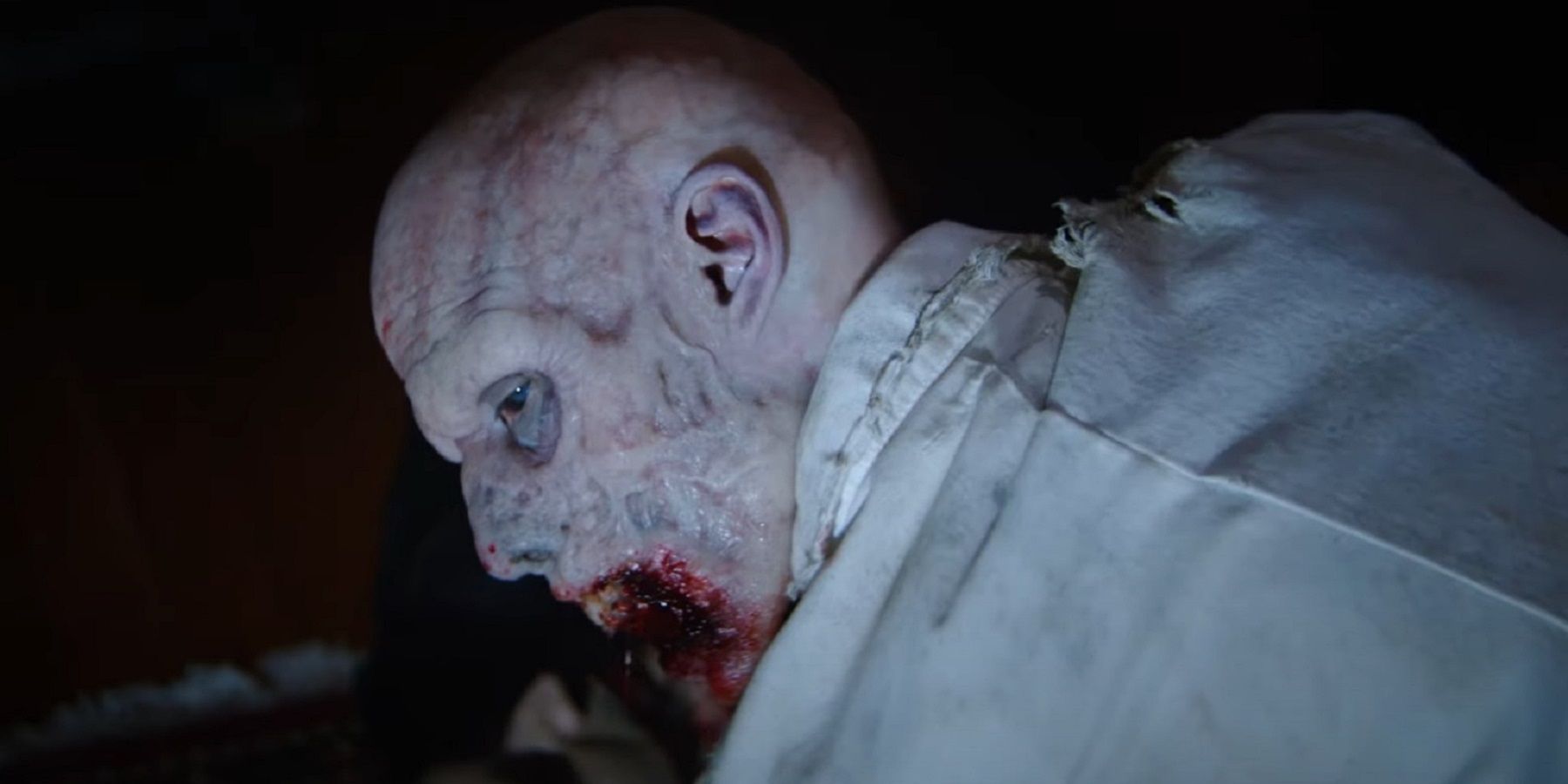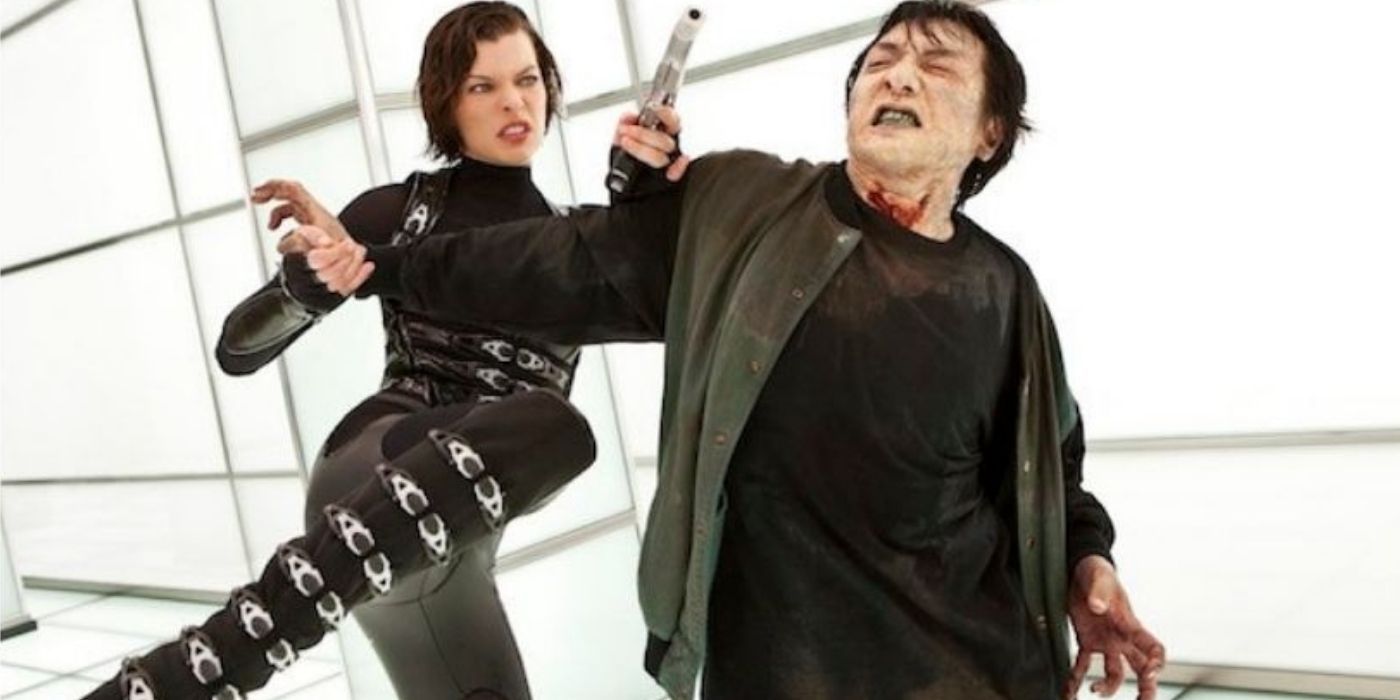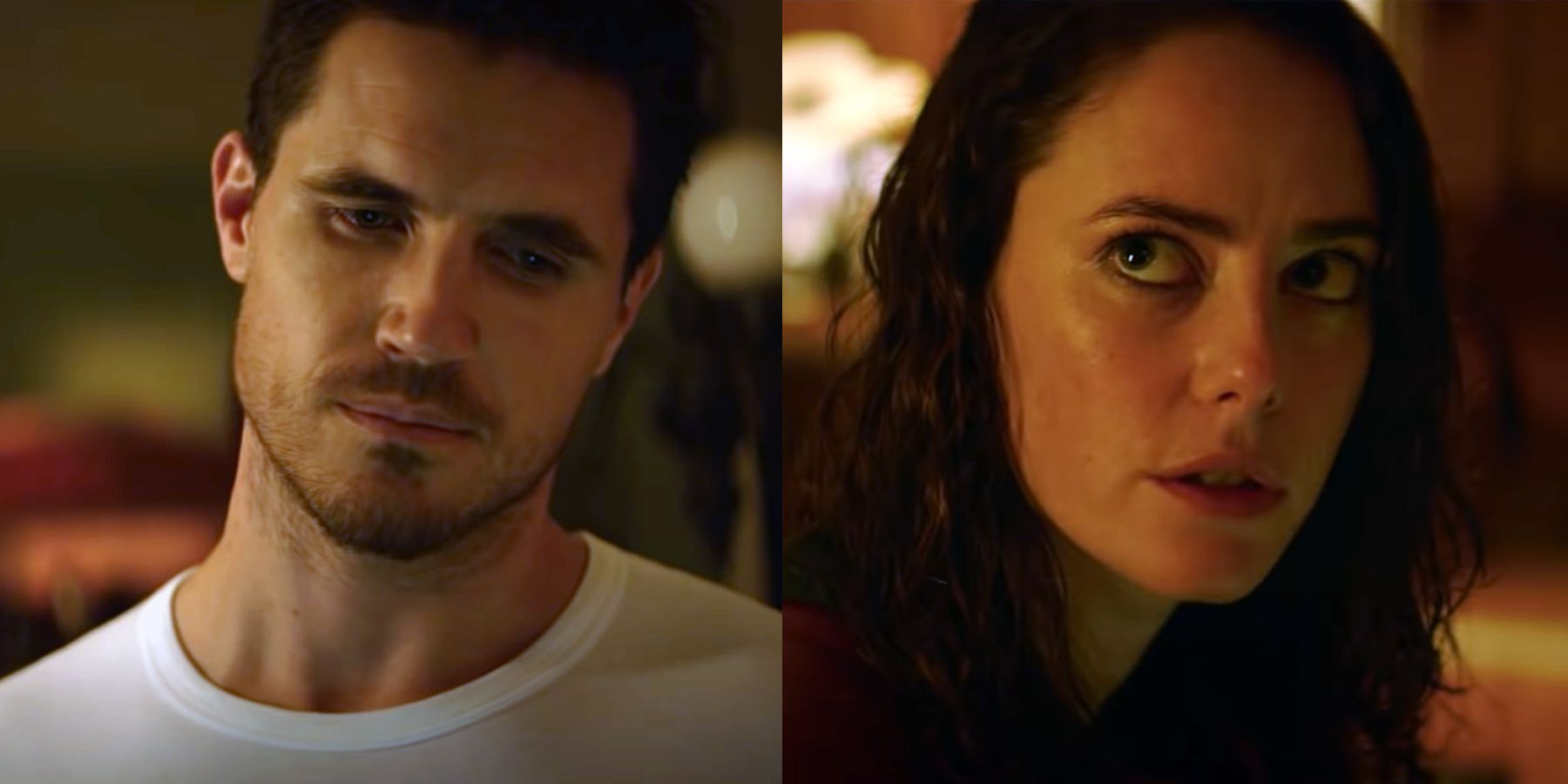Resident Evil has been adapted to film more times than almost any other video game franchise, between six live-action blockbusters and four animated movies. Surprisingly, none of those adaptations have been direct retellings of game storylines, until the upcoming Welcome to Raccoon City, which could present a new direction for the franchise.
The six live-action Resident Evil films from director Paul W.S. Anderson are overwhelmingly original stories starring Milla Jovovich as original character Alice. These films occasionally feature characters, monsters, and even scenes from specific games, but are mostly new stories taking place in the franchise's universe. Ditto the animated films, which star game mainstays like Leon Kennedy and Chris Redfield, but place them in mostly new scenarios.
Make no mistake, the live-action Resident Evil films are overwhelmingly bad. The first film is mostly okay, and the sequels feature a few standout moments, but the majority of the nearly ten-hour experience is boring or incomprehensible. The storyline focuses on Alice, an original character who shifts throughout the series from amnesiac cipher to superpowered monotone action hero. The storyline between films feels extremely slapped together, big cliffhangers go unresolved, the tone shifts with whiplash-inducing frequency, and the characters are mostly faceless sidekicks to be inevitably sacrificed to the zombie hordes. So if boldly deviating from the Resident Evil game storyline has led mostly to disaster, surely running back to the source material would solve the problem, right?
For moviegoers unfamiliar with the Resident Evil games, certain moments in the films serve mostly to confuse and annoy. The fourth film, Afterlife, features a frame-by-frame recreation of a Resident Evil 5 cutscene achieved by live-action stuntwork and budget CGI. This scene is surreal in its execution, completely out of place for a variety of reasons, and ultimately, hilarious. This is the effect accomplished by basically every version of direct adaptation of concepts from the games into the live-action films. Obviously, this is partially because they appear without justification in a completely unrelated film, but there is an element of these scenes and concepts that make them difficult to adapt to full live-action.
The animated films have an altogether different energy, embracing aspects of the original source material's absurdity. The tone of these films varies between insufferably grim dialogue and high octane John Wick-inspired action scenes. While these films do focus on characters from the games, their stories are more often set after or in between the narratives of the source material. While certainly more palatable than the live-action film franchise, the animated films shy away from anything akin to recreating moments for the game for a fairly obvious reason. Adapting a cutscene into the film's 3D animation would essentially be a barely better-looking retread of the same material, completely undoing any facade of usefulness. Live-action is the only way to justify the adaptation, whether it's a good idea or not.
So there's no point in reanimating cutscenes and every time the live-action films have tried it has turned out comically bad, so is there a way to adapt the games more faithfully? Maybe it comes down to exactly what parts make it to the screen. Both the live-action and animated games snag monsters at random from the franchise to liven things up in the big setpieces. Apocalypse, for example, sticks Nemesis in the film for no other reason than fanservice. Afterlife introduces the axe-wielding miniboss from RE 5, along with the aforementioned Wesker fight cutscene. Conversely, when Chris, Claire, Jill, or Leon make it into the films, they do so in what amounts to bad cosplay with worse narrative justification. Almost every piece of the games inserted into the films is either careless fanservice or faithful recreation of something from the later games.
The awful truth of the Resident Evil storyline is that the franchise goes off the rails over the years, gradually becoming incomprehensible and overblown. Resident Evil 6 is the point of critical mass, a bloated disaster of dumb action setpieces that completely abandoned the suspense and tension of its predecessors, but it wasn't the first silly entry. The fifth game is barely more restrained than its sequel, so when its material makes it onto theater screens it comes across as bad fan-fiction played out with a big budget. The first couple of games are much better stories, and therefore should be better to adapt, but there are even problems with that concept.
Resident Evil is not shy about its influences. Zombie media had not taken over the world like it did in the late 2000s when the first game came out, but it was certainly becoming powerful. Making movies out of Resident Evil is a bit of a paradox because much of Resident Evil was already made up of movies. From the works of George Romero to Italian Giallo classics, in many ways, there are already countless Resident Evil adjacent movies. This means that any adaptation of the franchise is more of a tone pastiche of several horror classics, but filled to bursting with tasteless fanservice.
Some games don't need film adaptations, because some games sell themselves on their gameplay. The genius of Resident Evil needs to be inhabited to be experienced properly. The game series that popularized survival horror, then reinvented it time and time again are special because of the atmosphere, experience, and catharsis that it rewards the player with. Resident Evil: Welcome to Raccoon City might manage to be the first great film in the franchise, but it'll be doing so despite its ideas, not because of them. Resident Evil is built for the interactive medium and it shouldn't have to abandon its principles just to push out a bit more fanservice.



